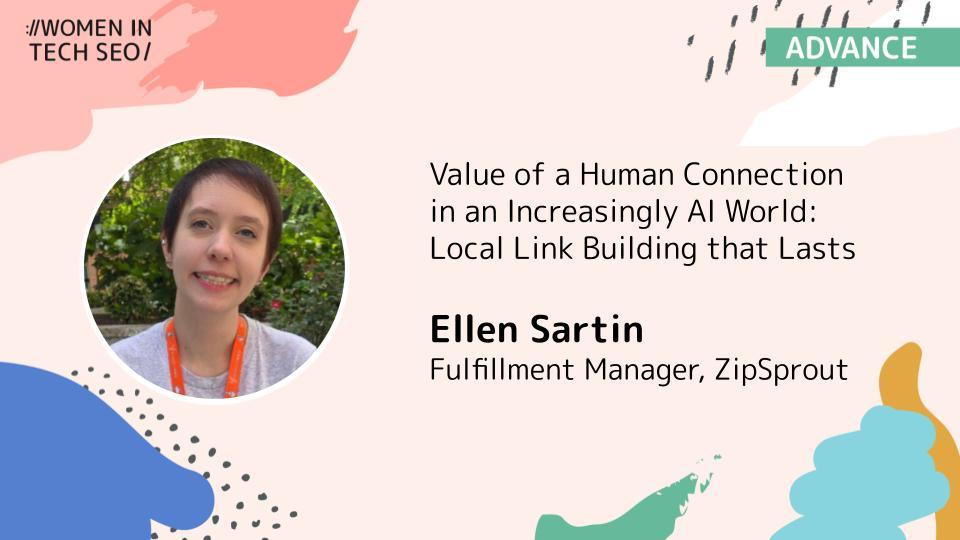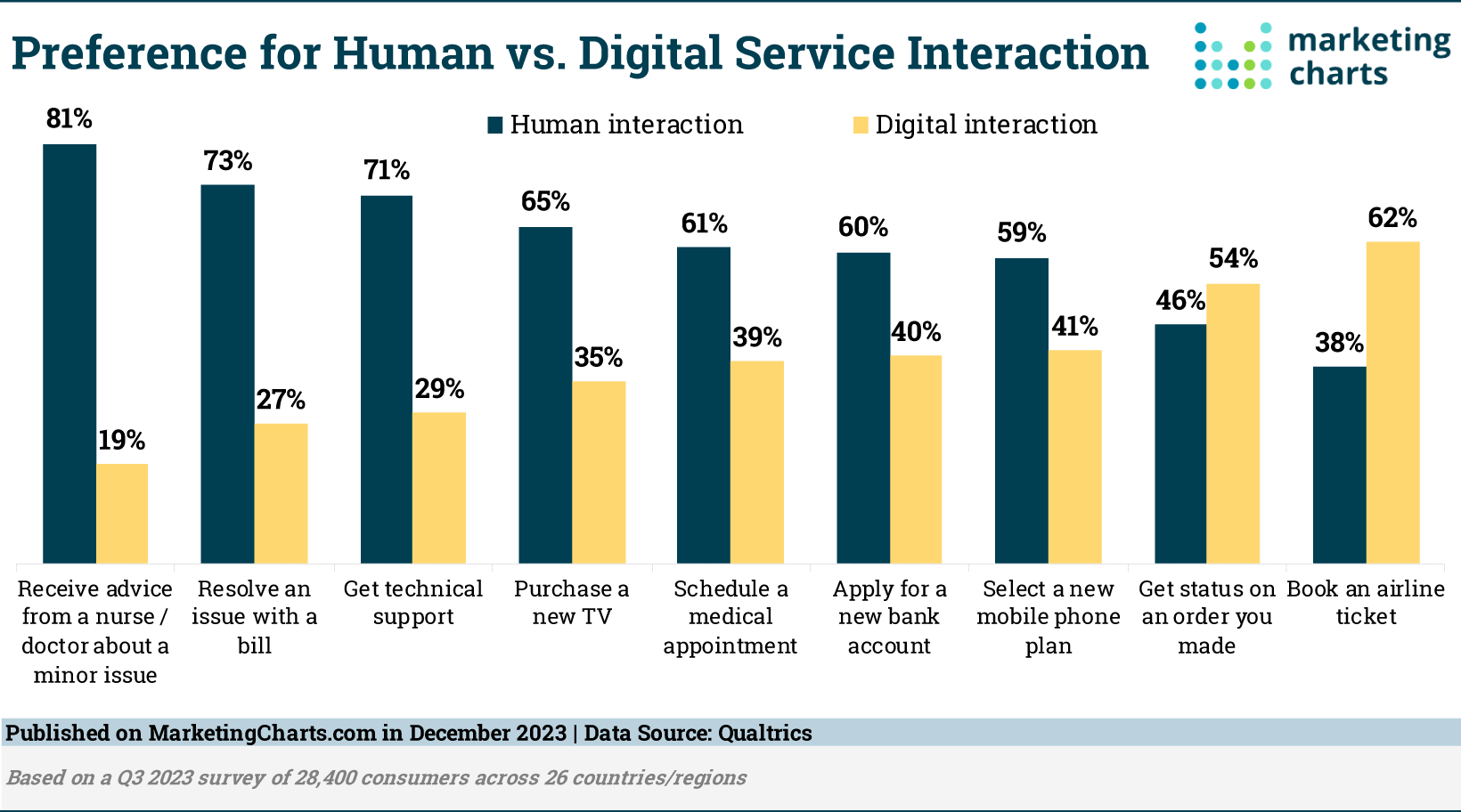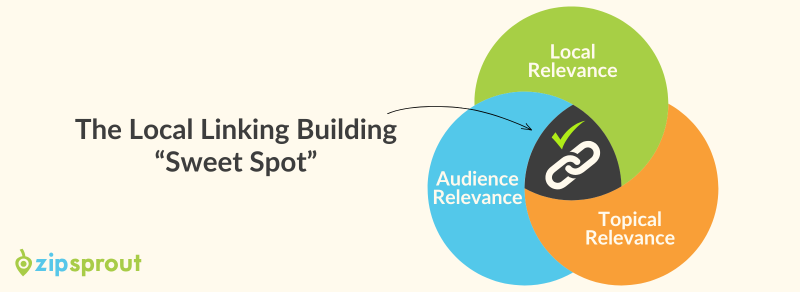👕 WTSMerch now available
🎟️ WTSFest 2026 tickets on sale for London, Portland, & Philadelphia
👕 WTSMerch now available
🎟️ WTSFest 2026 tickets on sale for London, Portland, & Philadelphia

Author: Ellen Sartin
Last updated: 05/11/2024

With the advent and increasing popularity of artificial intelligence (or AI), we can’t forget that human connections in SEO and link building are still vital.
Using AI as a tool to help with tasks and data collection can be beneficial, but consumers still say that connecting with another person when making purchases or business decisions holds more value than simply interacting with a computer.
Artificial intelligence is “the field of developing computers and robots that are capable of behaving in ways that both mimic and go beyond human capabilities. AI-enabled programs can analyze and contextualize data to provide information or automatically trigger actions without human interference.”
AI is a multifaceted technology that has become a major player in the SEO world. It encompasses a variety of tools that programmers and software developers use to collect and analyze massive quantities of data, problem-solve, and recognize patterns.
The short answer is - YES!

According to research collected by Qualtrics, and published in MarketingCharts, end users prefer to deal with a person when making decisions or asking questions across most fields.
The careful consideration and personal touch that comes with maintaining the “human element” is especially important for local SEO and link building. It is vital to be intentional about link building efforts. One bad link or too many irrelevant links built just for the sake of having links, can put you in “Google jail.”
I always make sure to encourage clients and businesses to carefully manage their growth of backlinks; focusing on quality over quantity. I’ll touch on this more in a moment, but first I want to review what a good backlink looks like at the hyper-local level.
Making sure the backlinks you build are relevant to your client makes a world of difference - and keeps search engines happy.

When building links, there are three relevance categories to consider:
At the hyper-local level, one of the best link building strategies is to connect businesses with nonprofits, organizations, and even events in their own communities. In my time working in Local SEO, I’ve found that contacting each organization individually and having real conversations with them provides a deeper level of connection and longer-lasting links.
Going beyond just a link and an increase in local online visibility, this method also helps to foster grassroots-connections in the communities, which can be a true game-changer for local businesses.
While there is much debate about whether or not Domain Authority is a good indicator of a healthy link, I’ve found it doesn’t play much of a role for local links. The weight of the links being location-based usually overshadows a website's DA score.
If you’d like to dive a bit deeper into this topic, you can read this article on DA at the local level.
You’ve probably noticed the drastic increase in companies using AI for a variety of tasks - from drafting articles to answering customer questions.
In the link building world, this opens the door for AI programs that can build massive quantities of links very quickly. While potentially cost-effective, websites using this strategy will suffer in the long run.
This type of link building directly violates Google’s link spam policies and can result in penalties or even blacklisting. Add into that the increased risk of linking to low quality, untrustworthy sites and collecting irrelevant links, using AI in this way is not an advisable strategy.
AI and AI-based tools are being released at a faster rate than they can be quality-checked and improved; and they are being far too heavily relied on, making many in the tech world feel uneasy at its implementation.
The demand for cheap - and especially easy - solutions to problems is out-pacing the development, viability, and functionality of these tools.
Even though this is not a new problem for technologies and products as they are built, when companies replace the human element of a job, too much can be left behind.
AI technologies have been found to hinder us in other areas as well, such as:
Using AI for brainstorming, drafting emails or posts, and compiling data are all excellent uses of these programs. However, it’s important to roll out the use and release of AI programs in the workplace with caution - and to remember to fact-check and review all information gathered through the use of AI.
Artificial intelligence is a tool, not an employee.
This idea is summed up perfectly in this article from Business Wire:
“[The] data confirms that, while enterprises who don’t take advantage of AI are leaving opportunities and revenue on the table, it’s important to implement the technology strategically. The goal is not to replace agents but rather, empower and inform them with tools and data insights to improve customer service interactions."
Keeping the human element by personally interacting with clients and businesses will set you apart in this increasingly AI world; increasing client retention and fostering stronger, lasting relationships for the future.

Ellen Sartin - Fulfillment Manager
Outgoing and enthusiastic, Ellen has over 10 years of marketing and business development experience, spending the first 8 years of her career managing a small coaching and consulting business in Atlanta, GA. With a minor degree in Applied Statistics and Data Analysis, she is a proud “data nerd” and has found a love for diving into the research and data aspects of SEO and the tech world in general.
She is passionate about the work she does now in Local SEO, and is extremely proud of the more than $6.6M sponsorship dollars placed by ZipSprout with local nonprofits and organizations on behalf of their clients.